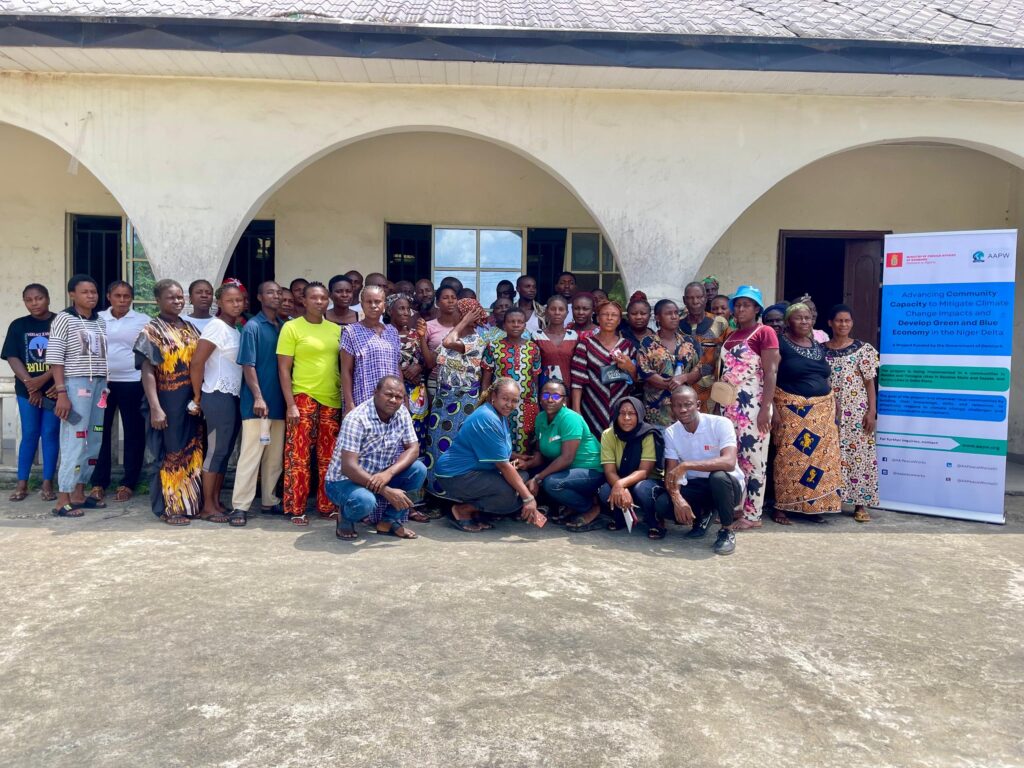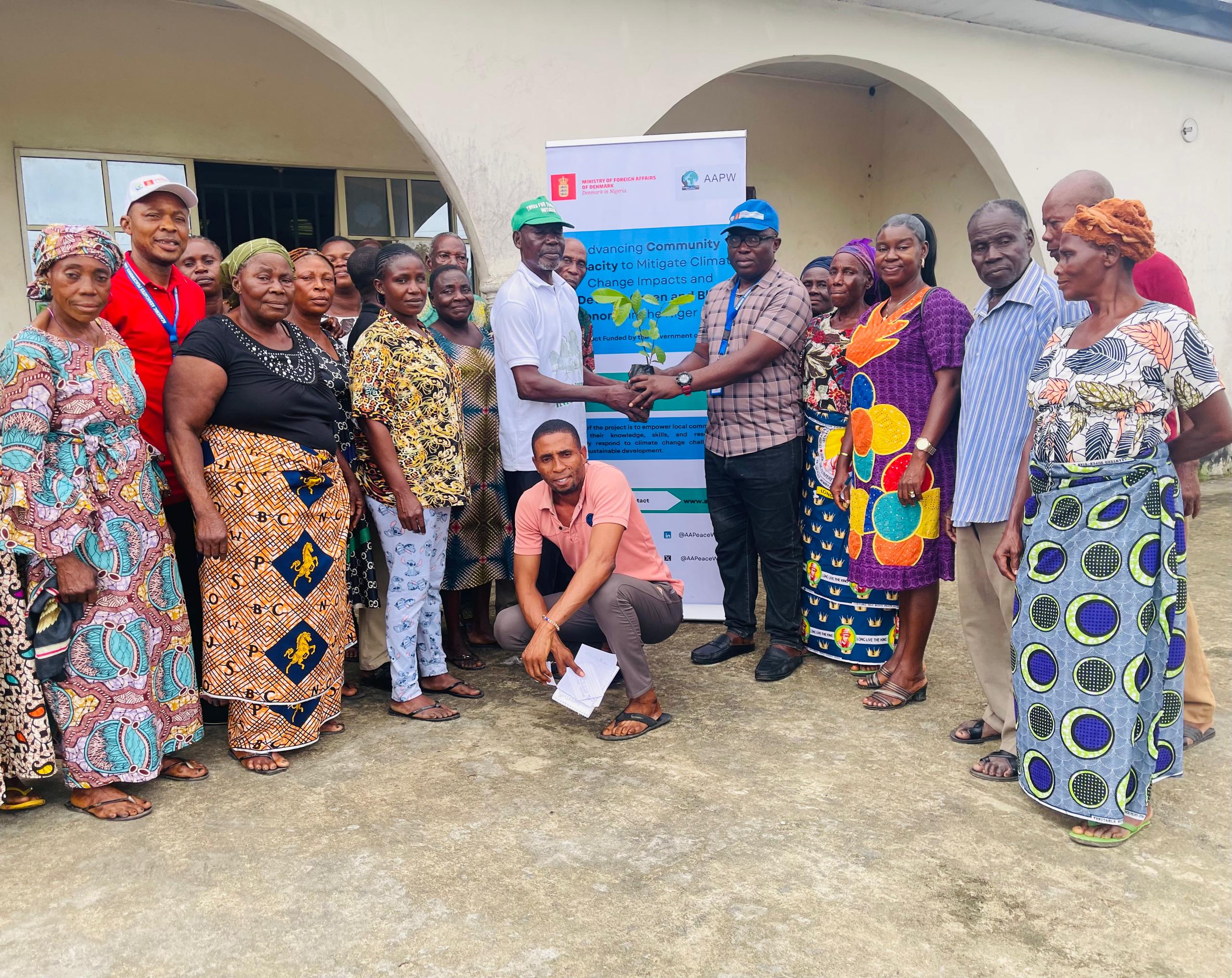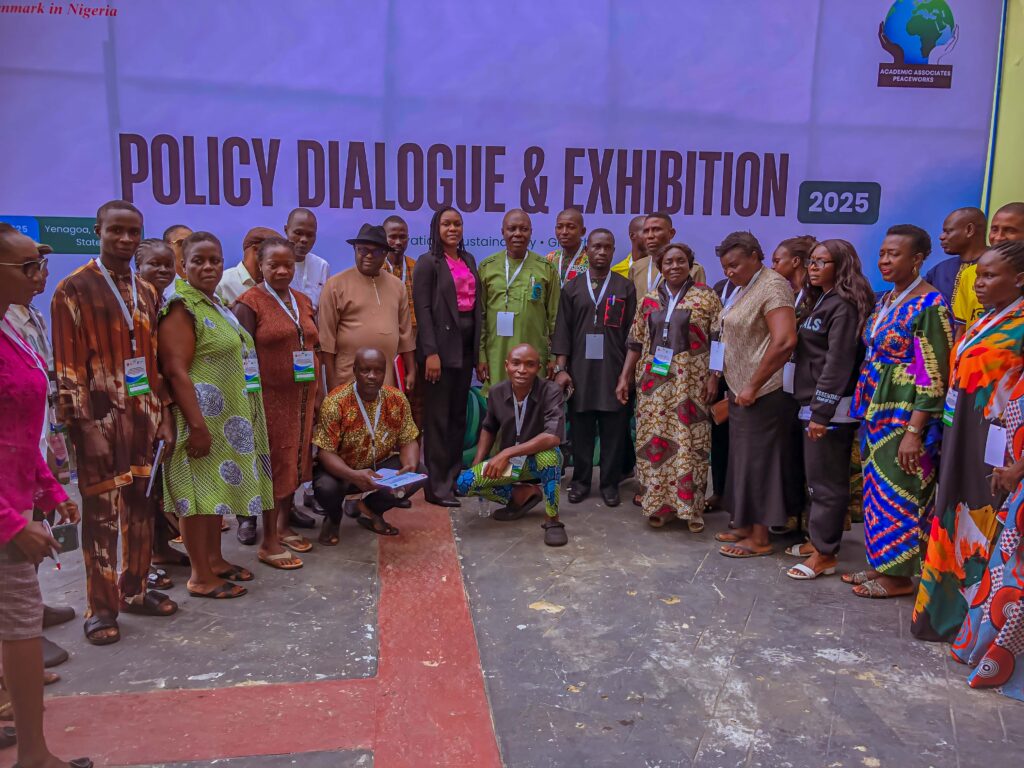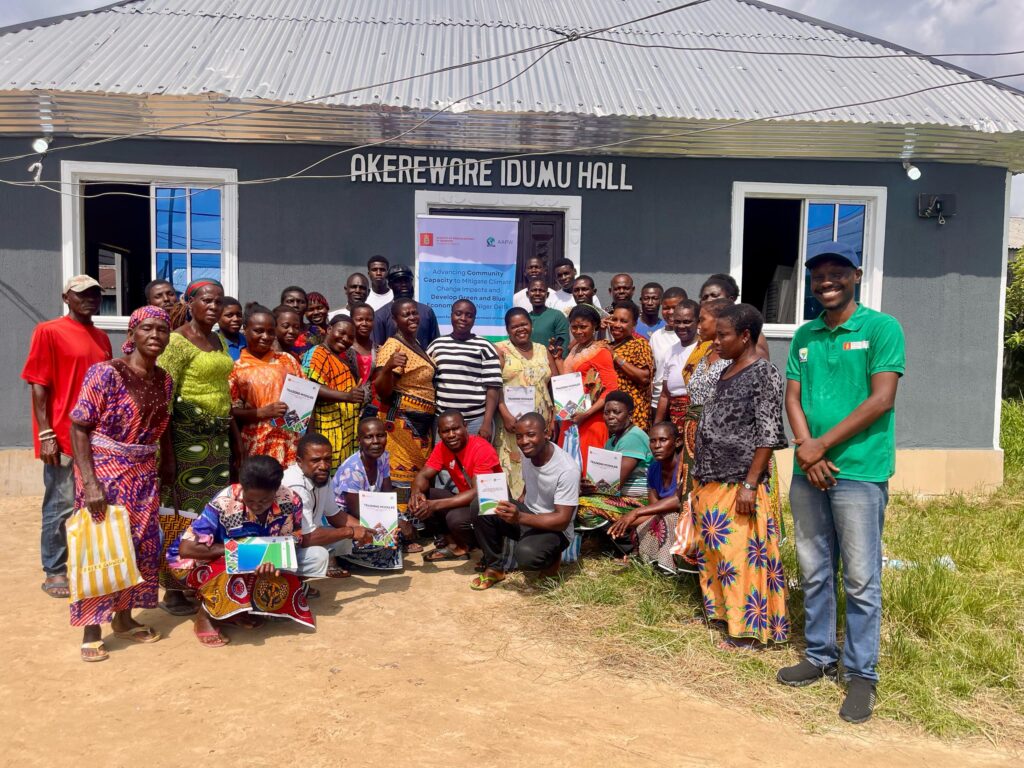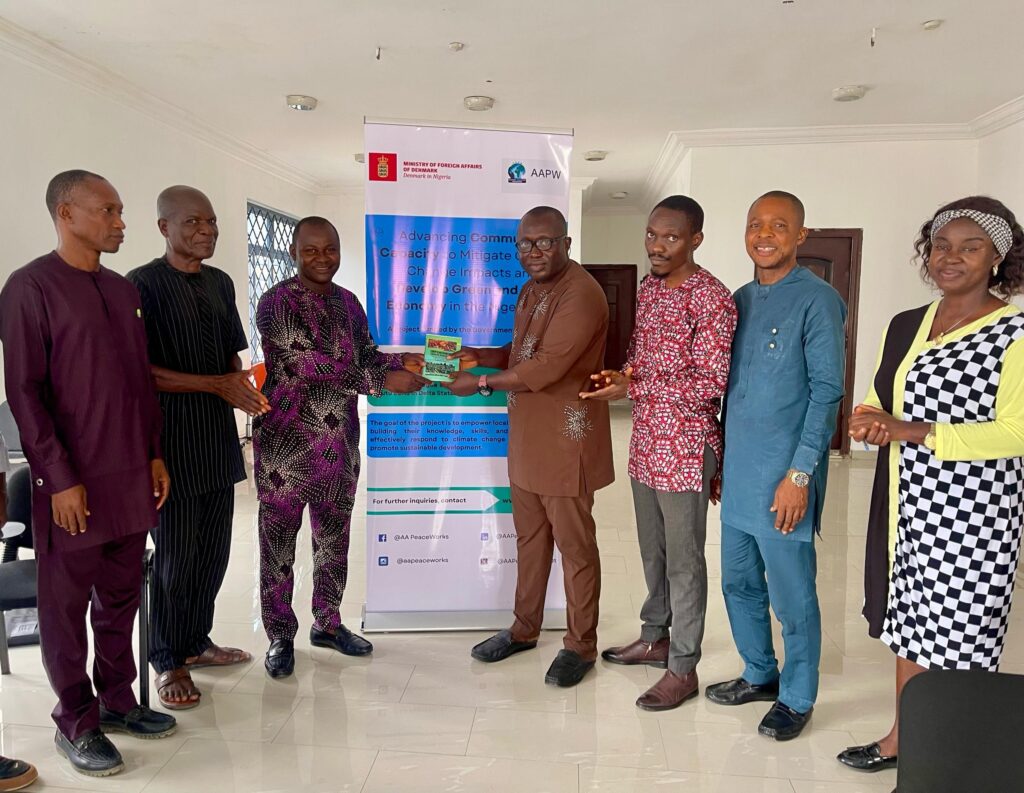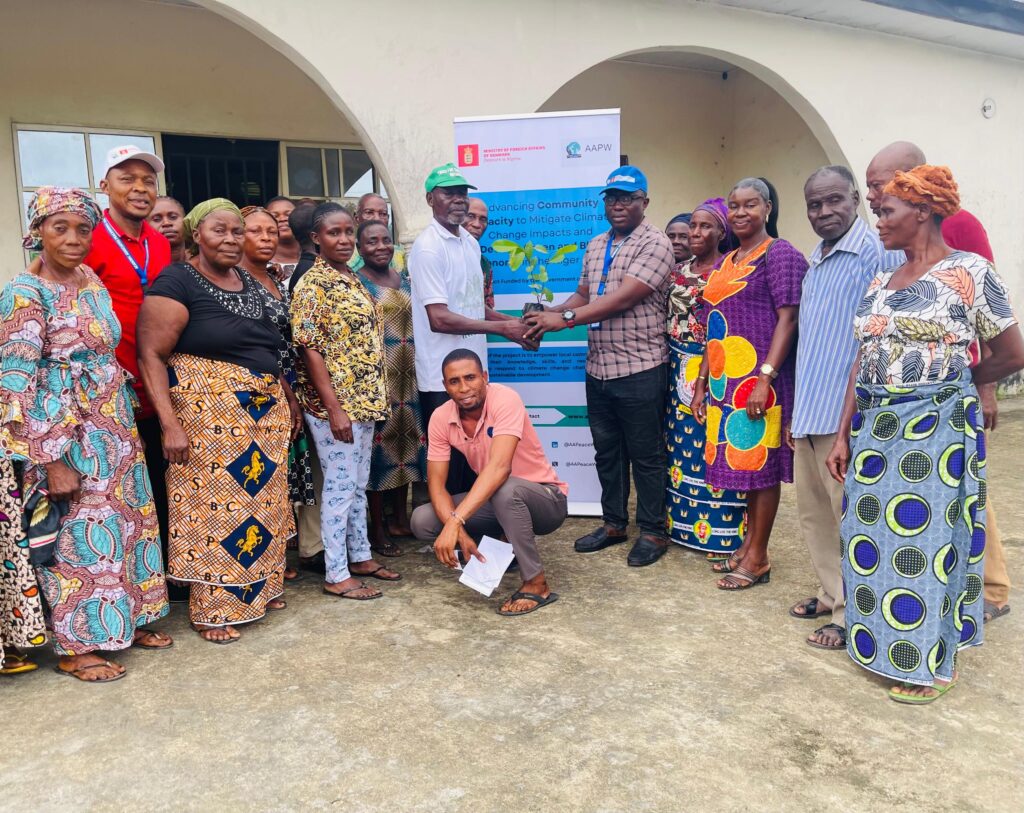
Academic Associates PeaceWorks (AAPW), with support from the Government of Denmark, has concluded the dynamic three-day training in Ayama, Ogboloma, and Okotiama communities, aimed at empowering locals with practical skills to combat climate change and champion sustainable environmental practices. The event culminated in the presentation of treculia africana (bush beans) trees to participants, symbolizing a commitment to biodiversity preservation and the fight against climate degradation.
Led by Mr. Utavie Jeremiah, AAPW’s Program Manager, each day’s activities were carefully structured to provide a comprehensive overview of climate resilience, sustainable development, and community collaboration. Mr. Jeremiah’s recap of previous sessions encouraged an interactive discussion, with participants actively contributing their experiences and the knowledge they had gained.
The third day of training was enriched by diverse sessions led by three expert facilitators who emphasized different dimensions of sustainable community development and climate change adaptation. Dr. Doutimiye Ogofa, Director of the Peacebuilding Conflict Resolution Trainers Network, opened the third day of training with an in-depth session on stakeholder engagement and collaboration. Dr. Ogofa emphasized the critical role of partnerships, encouraging communities to work closely with government agencies, NGOs, and private actors in the green and blue economy sectors. His presentation explored a variety of advocacy techniques, including rallies, lobbying, and one-on-one advocacy designed to make community voices heard.
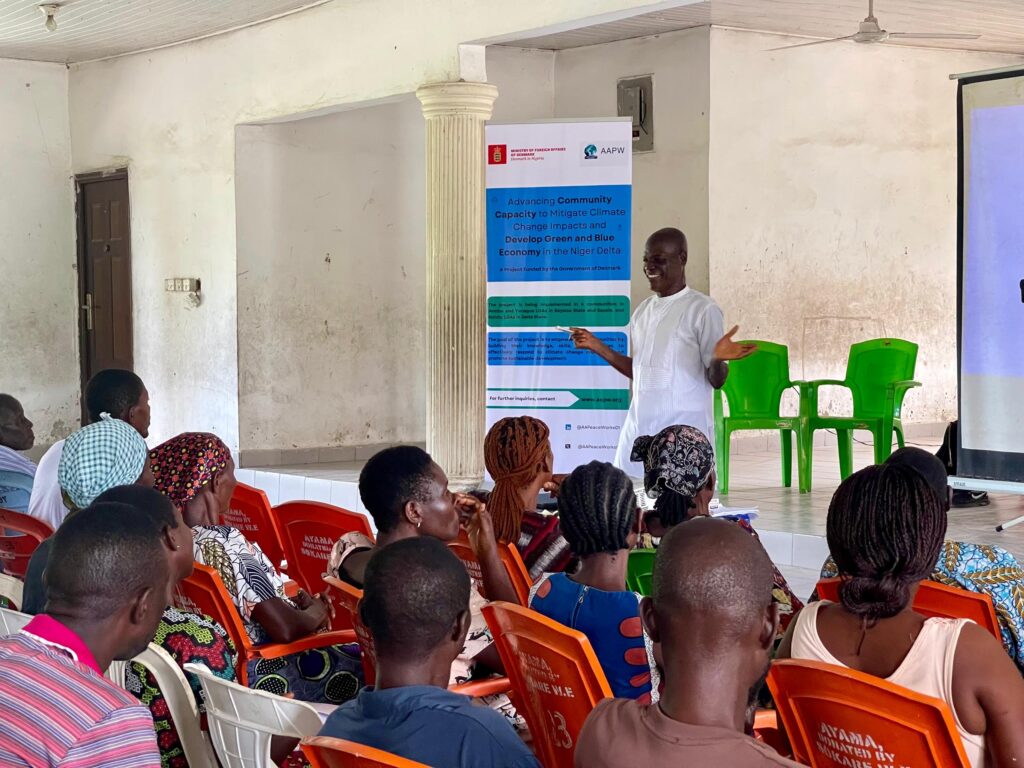
Building on this foundation, Mr. Kingdom Obuza guided participants through enterprise development and value-added activities. He provided a step-by-step approach to cooperative formation, from establishing leadership to drafting bylaws and managing group activities. His session also highlighted the importance of extension agents, who serve as valuable community resources in promoting sustainable agriculture. Mr. Obuza underscored the role of these agents in enhancing knowledge sharing and local capacity-building, key elements for a self-sustaining agricultural economy.
Rounding off the training, Dr. Taiwo Beketin, Director of Planning, Monitoring, and Evaluation at the Agricultural Development Projects (ADP), delivered an insightful lecture on sustainable rural development. Dr. Beketin detailed the three components essential for a robust rural development plan: resources, community, and governance, and outlined four pillars of sustainability: economic development, environmental conservation, cultural preservation, and social growth. She also discussed extension delivery as a crucial strategy for improving productivity and the well-being of rural farmers, stressing that well-trained extension officers are vital for a thriving agricultural sector.
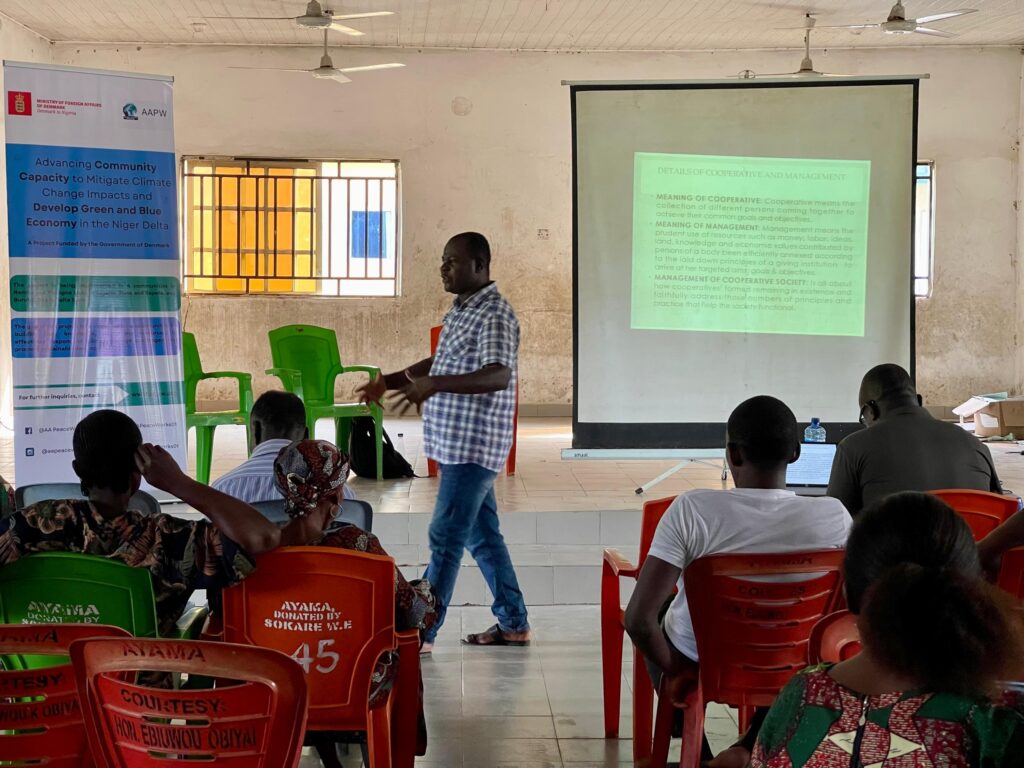
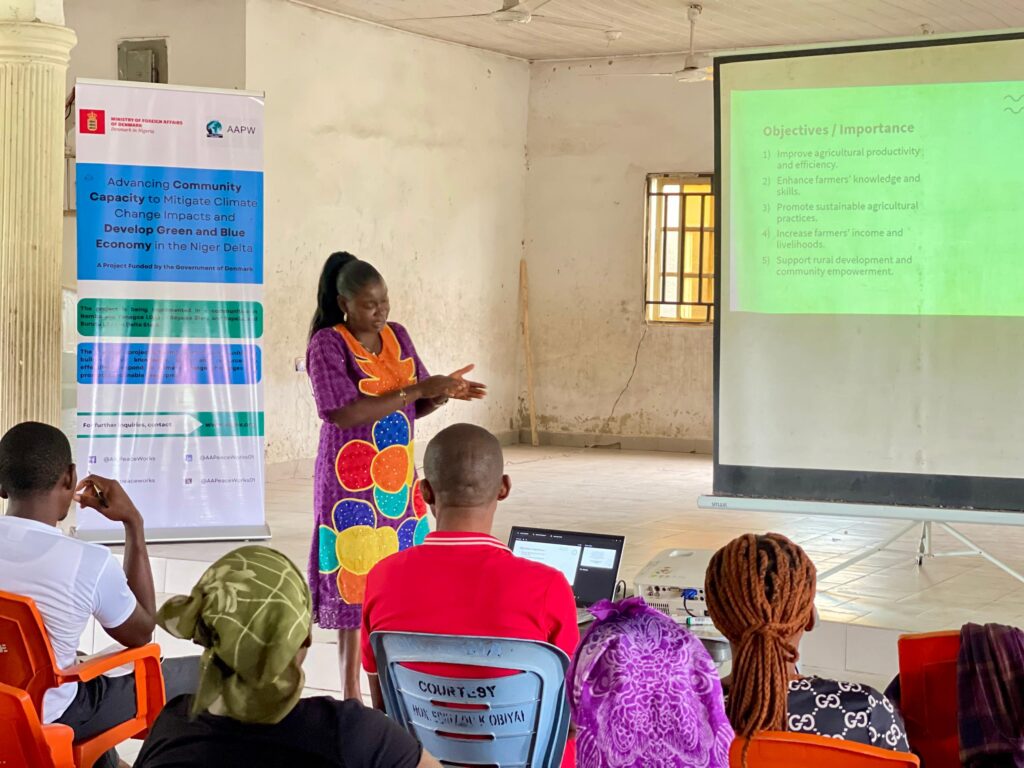
The attendees engaged enthusiastically throughout, raising critical concerns about the impacts of climate change on their livelihoods. Many emphasized the applicability of the training in helping them adapt to challenges in agriculture and fishing, which are vital to the region’s economy and food security. One participant noted, “These insights on advocacy and sustainable development are timely. They equip us to speak up for our communities and to develop strategies that improve resilience against climate change.”
The highlight of the closing ceremony was the presentation of bush bean trees to participants. The symbolic handover of trees embodied AAPW’s commitment to afforestation, offering each participant a direct role in restoring the environment. Chief Bartholomew Okolo, Director of the Trees for Tomorrow Initiative, delivered a compelling keynote address, underscoring the environmental value of tree planting. “By adopting tree planting and refraining from indiscriminate cutting, we safeguard the air we breathe and combat soil erosion,” he stated. He appealed to attendees to become stewards of their local forests and to inspire others to recognize the critical need for afforestation.
Mr. Utavie Jeremiah extended heartfelt thanks to the facilitators, the Government of Denmark, and the dedicated participants who made the training successful. He encouraged participants to apply what they had learned to drive positive change within their communities, emphasizing that small, consistent actions can significantly impact environmental resilience.
With newfound skills, connections, and resources, Ayama, Ogboloma, and Okotiama communities are now better equipped to champion sustainable development, preserve their ecosystems, and build resilience against the pressing challenges posed by climate change.
